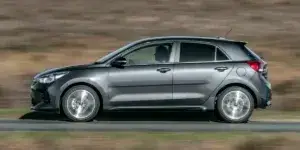Why does my car produce CO2?
Most cars on the road today use petrol or diesel fuel engines. When these fuels burn, they release energy that powers the car. However, this process also produces waste in the form of carbon dioxide gas. The higher the carbon content of the fuel, the more CO2 is released. This gas exits the engine through the exhaust pipe and disperses into the atmosphere.

How are CO2 emissions measured?
Before a car hits the market, its fuel economy and CO2 emissions are measured through a series of tests. These tests simulate various driving conditions to calculate an official CO2 emission figure, expressed in grams per kilometre (g/km).

How do my car’s CO2 emissions affect my wallet?
Since 2004, many countries, including the UK, have based annual road tax charges on a car’s CO2 emissions. Cars are categorised into different tax bands, with lower-emission vehicles paying less or no road tax, and higher-emission vehicles paying more. These bands were updated in 2017 to increase charges on most cars.
You can learn more about the fuel efficiency and other important factors when choosing the right car.

How do I find out my car’s CO2 emissions?
You can usually find your car’s CO2 emissions on the V5C registration document. Various online calculators also allow you to input your car’s registration number to get detailed information about its emissions and road tax costs.
If you’re considering buying a used car, our buying guides can offer advice on what to look for, including CO2 emissions.

What is considered a ‘Good’ CO2 emission level for a car?
A car that produces less than 100g/km of CO2 is generally considered to have low emissions. Older cars that emit 99g/km or less and were registered before April 2017 may even be exempt from road tax.
When looking for a car, consider models like the Volkswagen Polo or BMW 1 Series, which are known for their relatively low emissions.
What sort of cars produce the least CO2?
Diesel cars generally produce less CO2 than petrol cars, thanks to their fuel efficiency. Hybrid cars, which can run on electric power for part of the time, also produce low emissions. Plug-in hybrids and electric cars have even lower CO2 emissions, with electric vehicles being entirely emission-free.
For those considering a switch, our electric car buyer’s guide provides detailed insights into the benefits of electric and hybrid vehicles.

How can I lower my car’s CO2 emissions?
Reducing your car’s CO2 emissions is mainly about improving fuel efficiency. Here are some tips:
- Maintain Your Car: Regular servicing ensures the engine runs efficiently, reducing fuel consumption.
- Drive Smart: Accelerate and brake gently, and keep windows closed to improve aerodynamics.
- Reduce Weight: Remove unnecessary items from your car to make it lighter.
- Check Tyre Pressure: Under-inflated tyres increase fuel consumption.
- Use Less Air Conditioning: Electrical components can consume significant amounts of fuel.
Can smaller wheels really lower CO2 emissions?
Interestingly, fitting smaller wheels can reduce your car’s CO2 emissions. Smaller wheels mean the engine doesn’t have to work as hard to turn them, thus consuming less fuel. However, this isn’t always feasible due to technical constraints like brake size.

Final Thoughts
Understanding car CO2 emissions is crucial for both environmental and financial reasons. By knowing how emissions are measured and what affects them, you can make more informed choices when buying or maintaining your car. Whether you opt for a traditional fuel-efficient vehicle, a hybrid, or go fully electric, every little bit helps in reducing your carbon footprint.
If you’re ready to explore more about fuel-efficient cars, check out our articles on the most economical petrol cars and the best electric cars for city driving.


